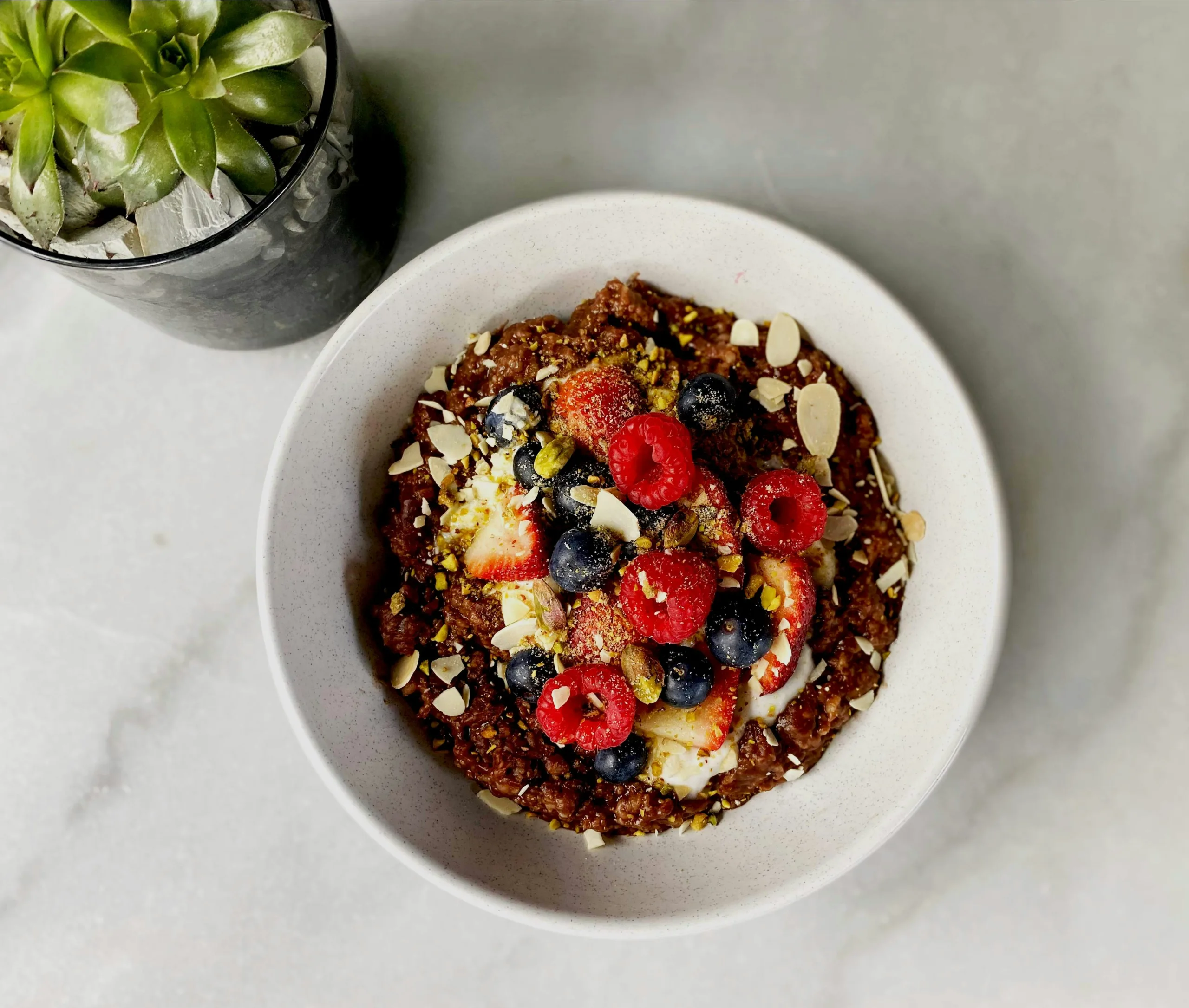Ask Keri: Is it better to eat several small meals throughout the day or three larger ones?
Keri Says: First, when it comes to diet and our health, it’s a little less about how frequently you eat and more about what you’re eating when you do. But, that’s the very short answer. So here goes…
Many observational studies have suggested that smaller more frequent meals might improve metabolic health, satiety and weight. Yet, mixed results from recent intervention studies suggest there is no significant difference between several small meals or three large ones, which means again, there’s not a one-size-fits-all recommendation. Instead, choose the option that works best for you and your lifestyle.
I will say that, over the years my clients have done better when incorporating at least one snack a day within a healthy diet. But, proper snacking is key and that’s a whole other q & a.
Here’s a little more on what research has to say:
Metabolism
One argument for eating several small meals throughout the day is that it keeps your metabolism revved. Your body uses energy to digest food, so the theory is that the more frequently you eat, the more calories your body is burning. Leblanc and colleagues fed study participants the same number of calories divided into either one or four meals and found that increased meal frequency increased post-meal energy expenditure and fat utilization.
On the other hand, intervention studies utilizing metabolic chambers (a tool for measuring metabolism in a controlled environment) such as this one and this one did not find significant differences in resting metabolic rate or energy expenditure between low and high meal frequencies.
Weight
Even if meal frequency doesn’t have an effect on calories burned, does it influence how many calories you consume? The research is mixed as well. Two studies—one in obese men and one in lean men—both assessed how eating breakfast in one meal vs divided into four smaller meals would influence subsequent appetite and energy intake. In both cases, increased meal frequency lowered hunger and appetite, which may mean that several small meals could potentially prevent you from overeating. That being said, only the lean men ended up consuming less in the following meal.
What about overall weight? Many observational studies have noted trends between increased meal frequency and lower risk of obesity. In addition, research suggests that specifically consuming protein more frequently may help preserve lean body mass while decreasing total body and abdominal fat. Still, there are other studies that have not found a significant difference in body weight. For example, an 8-week intervention study of obese adults on a restricted diet did not find a difference in weight loss when participants ate the same amount of calories from 3 meals a day or 3 meals plus 3 snacks a day.
Chronic Disease Risk Factors
Maintaining normal blood sugar and lipid levels is key for preventing chronic diseases such as diabetes and heart disease. Some intervention studies have found that eating smaller portions reduces insulin excretion, while others did not find any significant difference in insulin or blood sugar responses.
Mixed results have been found with lipid and cholesterol levels, too. In a 1-year clinical trial, 140 study participants were randomized to eating either three meals a day or three meals plus 3 snacks a day. There were no differences in metabolic variables except for an increase in HDL (aka the good cholesterol) in the 3-meal group. Yet, another small study of nineteen healthy individuals compared 3 vs 9 meals per day and found that more frequent meals significantly decreased LDL (aka the bad cholesterol).
The Bottom Line
This one is personal. With various findings likely due to varying study designs, more research is needed.. Regardless, what’s most important is the quality of food you eat, the proportion of nutrients you eat and understanding your behavior and lifestyle. Do you binge if you go into dinner hungry? Or, do you pick all day if you take out even a portioned healthy snack? .
If you find yourself so hungry by dinnertime that you’re scarfing down an entire box of mac and cheese and tearing into a package of cookies, then more frequent smaller meals might be a better fit to prevent poor food choices and overindulging thanks to hunger. Again, I’ve found this to work for most clients.
On the other hand, more eating occasions for others might just turn into more opportunities to overeat or rely on less nutritious convenience foods. If your smaller meals aren’t actually small or consist of chips and baked goods, then you might want to stick to three meals a day. Either way, make sure to fuel up on whole foods including those that are high quality protein, healthy fats and high fiber carbohydrates.
–





























